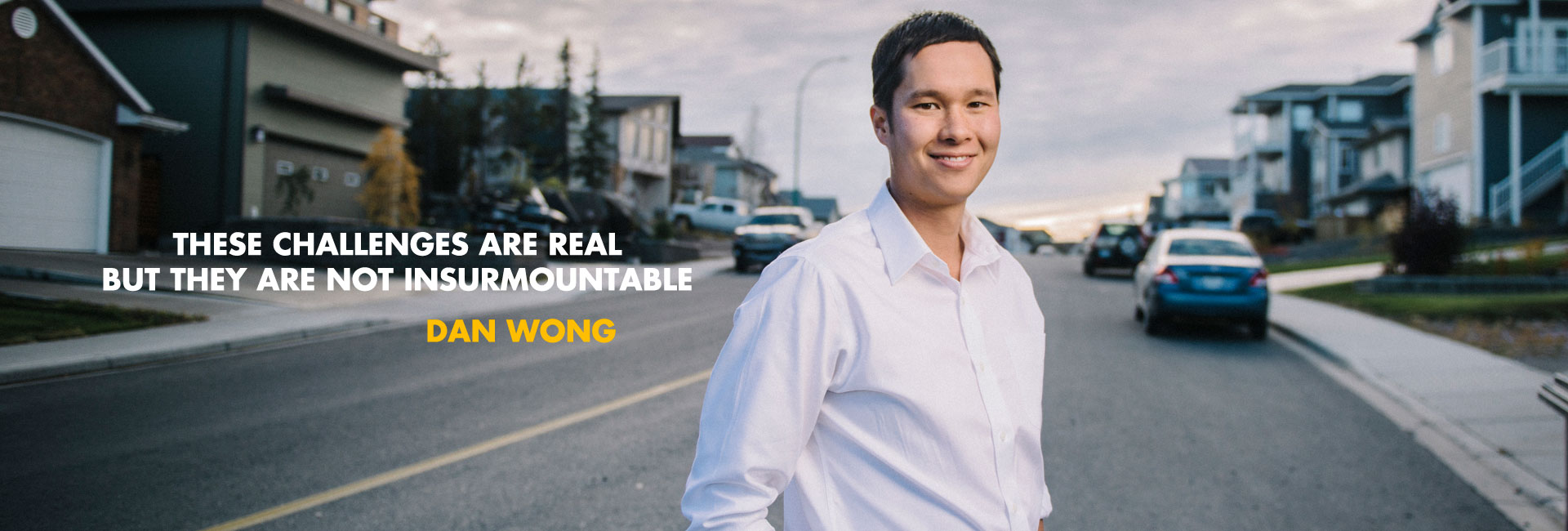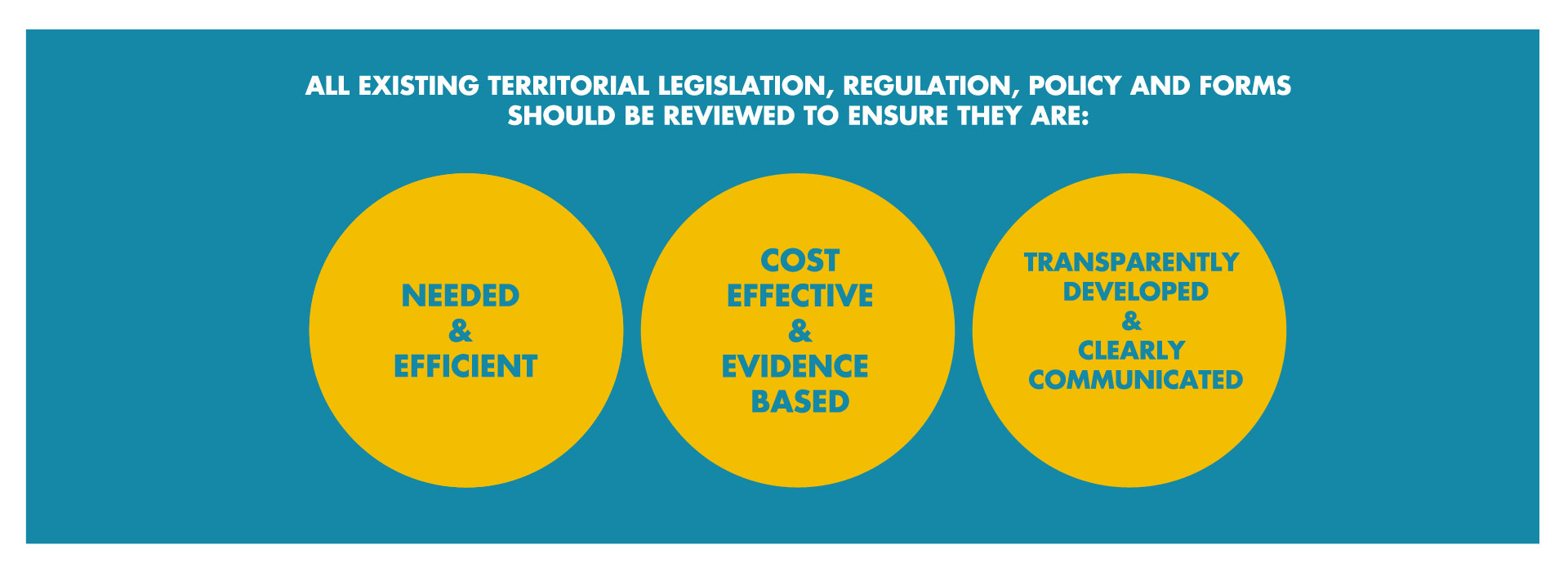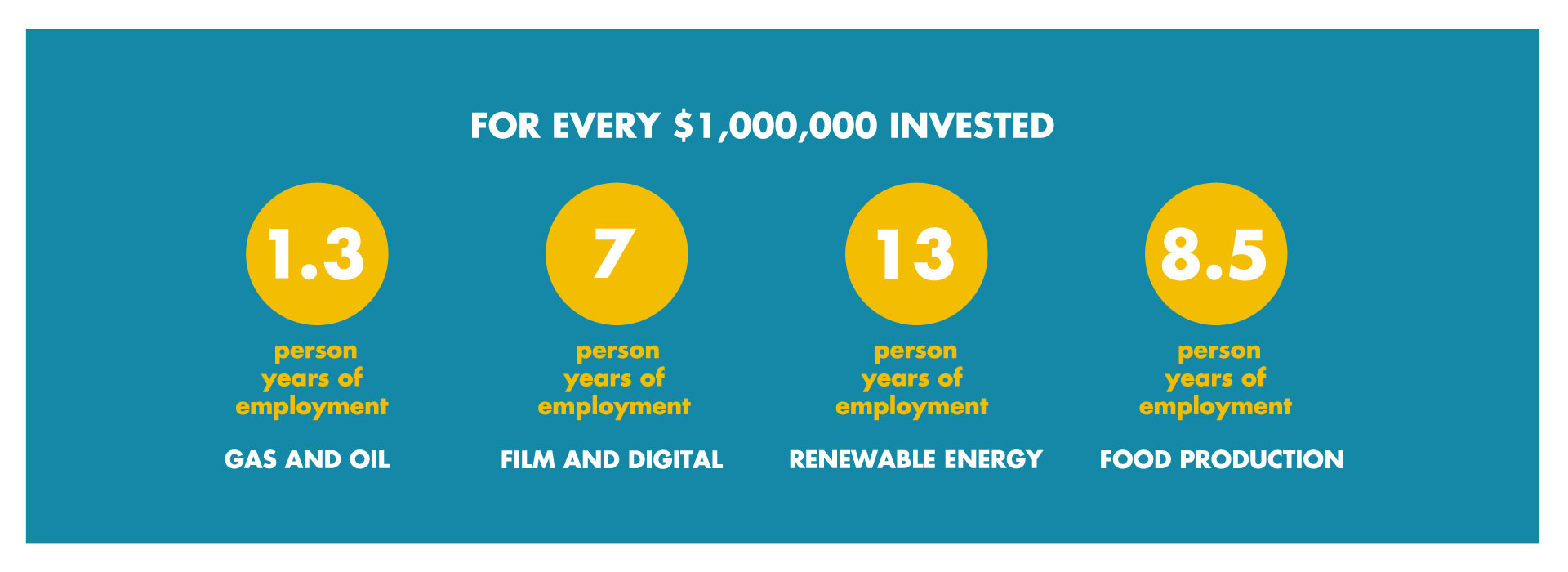
Grow a Sustainable Economy
The state of the northern economy affects us all. It is clear that the NWT has been hit hard by the recent economic downturn in the mineral industry. The territorial government may not have control over the international investment climate or mineral commodity prices, but it does control our public investments, programs and policies. After years of missed opportunities, many of us are also beginning to doubt that Cabinet is doing everything it can to build a strong local economy.
Here's how we can do it:
Support Small and Local Business
Small businesses in the NWT face one of the harshest entrepreneurial climates in the country. Operating costs are high, freight costs are prohibitive and in a small population, it is virtually impossible to retain quality staff. While the role of government is not too solve all our problems, it should create a context of opportunity for businesses to work hard, succeed and shape the future they desire. One would think the government would do its utmost to facilitate operations for small local businesses, but that is not the case.
Our commitment to help small businesses succeed is questionable given that the NWT lags behind all other provinces and territories on red tape accountability. Part of the problem is we haven't attempted to measure or quantify the amount of red tape—and without knowing the size of the problem it's impossible to tackle it. In order to create an attractive business environment, I'll fight to audit territorial government regulations, policy and forms and publically report on efforts to reduce paper burden, wait times and rules that are overlapping or outdated.

As MLA, I would make regular consultations with the Yellowknife Chamber of Commerce and businesses in Yellowknife North a priority, in an effort to work collaboratively to improve customer service from the territorial government. Collaboration will lead to more respect and policies that help, instead of hinder, the small business sector. As a Councillor, I have worked closely with Yellowknife Chamber representatives on the Community Energy Planning Committee, and I've established a positive working relationship with these individuals.
Other initiatives I will work on:
- Examine the merits of amending the Business Incentive Policy (BIP) to empower municipalities to spend locally.
- Design large infrastructure tenders and proposals so they are appropriately scaled and broken down to attract bids from local businesses in the communities in which they are issued.
- Ensure the territorial government is not creating new positions to deliver services that are already offered by the private sector.
Responsible Mining
I'll advocate for feasible projects that support our existing mineral industry, such as an all-weather road to the mineral-rich Slave Geological Province.
I believe in collecting adequate security shortfalls so territorial taxpayers will not be liable to cover future cleanup costs.
The mining industry generates significant revenues for northern businesses and will continue to be the cornerstone of our economy for some time. I believe mining tax and royalty revenues can fund the investment we need to build local economies of food production, tourism, film and renewable energy. But mines don't last forever, nor are they found overnight.
If we want to make the Northwest Territories more attractive for investment, then we must address transportation and energy as big limitations on resource exploration and development. Unfortunately we likely won't be able to afford all of the infrastructure projects on the table in the next four years of the 18th Assembly. I believe we'll need to prioritize between an all-weather road to the diamond mines or a highway up the Mackenzie Valley. I don't believe a Mackenzie Valley highway is an appropriate target for taxpayer funded investment right now because I'm not convinced the benefits from oil and gas development are worth the costs. If elected, I'll advocate for feasible projects that support our existing mineral industry. An all-weather road north from Yellowknife to the mineral-rich Slave Geological Province would open up lower-yield areas that aren't currently cost-effective to extend the life of our diamond mines and allow smaller mines to begin operation.
In order to grow the mineral industry in a way that mitigates long-term consequences on the local environment, the territorial government will need legally-binding reclamation requirements applied to all mine operations. The fact is, current security shortfalls mean territorial taxpayers may be liable to cover future cleanup costs. The security shortfalls exist because not all MLAs are concerned about the costs of mine reclamation, and those who are will need your support to do something about it.
Building a strong local economy
Commodity prices are notorious for dramatic up and down swings. If a government is dependent on revenues from any single commodity, revenue streams can similarly go up and down quickly, making it difficult to set budgets and ensure consistent delivery of programs and services.
It's not too late to start moving in a new direction. If elected as MLA, I will collaborate with and support four key industries:
- Film, video and digital media are the centre of a growing and dynamic industry. Participation from local residents in the NWT is increasing and there are a number of projects currently in production. Experienced television and film professionals are available to offer their services and expertise to visiting production companies.
- The agriculture sector is not a major contributor to the GDP in the NWT but from a production point of view, there is vast potential. Arable land in the NWT remains mostly undeveloped. With government support, local food production can play an important role in addressing the high costs in NWT communities.
- The abundant solar, wind and biomass resources of the NWT are largely untapped and provide us with a resource to build a strong local economy.
- Tourism is our largest renewable resource. It already generates local employment for many northerners. Tourism can be an essential building block in a diversified economy and we need to build on the record visitor numbers seen this year in Yellowknife and Inuvik.





